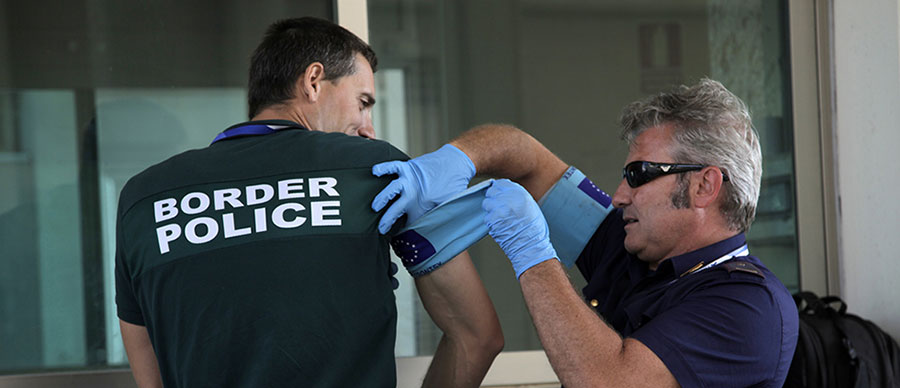Yesterday, a third video conference took place between the contact points (see Annex) nominated after the Western Balkans Route Leaders’ Meeting held on the 25 October. The objective was to follow up on the agreement reached at the meeting and set out in the Leaders’ Statement. Senior officials from the countries and agencies present at the meeting had a detailed discussion on selected priority actions of the 17-point plan of action:
Leaders’ Statement Point 9 relating to ongoing information exchange:
Frontex reported that the daily exchange of information is functioning well and will be further improved as of 13 November following a workshop organised by Frontex in Warsaw on 12 November.
Leaders’ Statement Point 13 on border management:
A broad discussion on the different border protection points allowed for an exchange of information between the countries and organisations on the call, including the following key points:
- Slovenia informed about measures to be taken at its borders. Slovenia also updated the group on the planned deployment of 400 police officers from other Member States in Slovenia. 182 police officers are currently deployed on the ground and an additional 114 are currently under discussion. Contact points indicated that further pledges would arrive shortly.
- Frontex informed about measures that need to be taken to increase the presence of Frontex along the Western Balkan Route. Frontex confirmed that is has received a response from Bulgaria, Croatia and Greece to the letters sent to the national Frontex points of contact and the Interior Ministers of Croatia and Greece regarding the commitment to upscale Operation Poseidon and to reinforce Frontex support at the Bulgarian-Turkish border and the Croatian-Serbian border. Frontex indicated its readiness to deploy additional assets to Greece as soon as the practical arrangements were finalised and team leaders deployed.
- Frontex provided an update on upscaling the Poseidon Sea Joint Operation in Greece and reported that Member States pledged 320 border guards out of the 775 the Agency has been calling for. The 320 border guards can be deployed gradually according to operational needs.
- The Former Yugoslav Republic of Macedonia provided updates on ongoing bilateral contacts with Greece concerning the strengthening of their management of the external land border.
Leaders’ Statement Points 5 and 6 relating to support and shelter to refugees:
Discussions focused on the need to increase the reception capacity along the Western Balkan Route and in Greece as agreed at the Leaders’ meeting. The contact points also discussed the need to increase the possible duration of stay at the points along the route.
The group will reconvene again on 19 November for the next weekly video conference, and will continue their bilateral contacts in the meantime to ensure full communication, coordination and cooperation to address the migration flows and to ensure humane treatment of those seeking asylum in Europe.
Background
On Wednesday 21 October, European Commission President Juncker called for a Leaders’ Meeting on refugee flows along the Western Balkans route to address the emergency situation unfolding along this route.
At the meeting, all 12 leaders – including the President of the Commission – agreed to nominate contact points within 24 hours to allow daily exchanges and coordination to achieve the gradual, controlled and orderly movement of persons along the Western Balkans route and to monitor the implementation of the 17-point plan agreed on 21 October.
Attending the Leaders’ Meeting were the Heads of State or Government of Albania, Austria, Bulgaria, Croatia, the former Yugoslav Republic of Macedonia, Germany, Greece, Hungary, Romania, Serbia and Slovenia. The President of the European Parliament and the President of the European Council, the Luxembourg Presidency of the Council of the EU, the future Dutch Presidency of the Council of the EU and the United Nations High Commissioner for Refugees were in attendance. The European Asylum Support Office (EASO) and the European Agency for the Management of Operational Cooperation at the External Borders of the Member States of the European Union (Frontex) were also represented.



